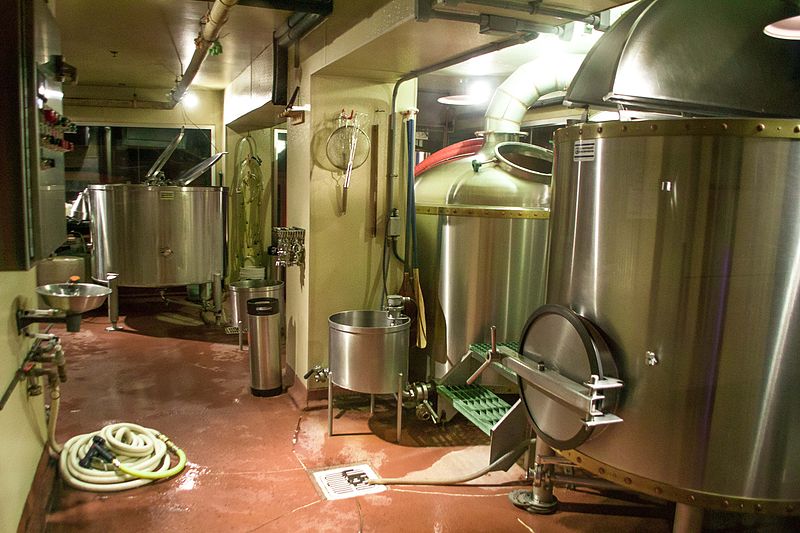
In a significant move towards achieving net zero emissions and fostering economic growth, the UK government has allocated £51.9 million to support 25 businesses in adopting innovative,
emissions-reducing technologies. This initiative is part of the broader Plan for Change, aimed at transforming Britain into a clean energy superpower while revitalizing its economy.
From beer brewing to baked beans, dairy farms, and cement production, businesses across England, Wales, and Northern Ireland have secured nearly £52 million in grants. These funds will help them implement technologies such as heat pumps, carbon capture systems, and advanced recycling facilities. In total, the projects supported under this scheme are valued at £154 million, with participating companies covering about two-thirds of the overall costs. This public-private partnership not only cuts emissions but also creates new jobs and stimulates local economic growth.
Notable projects receiving government support
Among the grant recipients are well-known companies and smaller enterprises alike. Nestlé’s coffee processing plant in Staffordshire, Heinz’s baked bean factory in Wigan, and a specialist craft beer company in Cornwall are set to benefit from the funding. These companies are investing millions of their own capital alongside government grants to install emissions-reducing technologies, including heat pumps and carbon capture systems.
One standout example is Heinz, which received over £2.5 million and contributed nearly £5 million of its own funding. The company plans to install heat pumps that reuse waste heat generated during production, significantly improving energy efficiency. This move will reduce the company’s dependence on fossil fuels, cut emissions, and lower energy bills, enabling further investment in other areas.
In North Wales, Hanson Cement secured a £5.6 million grant to support a large-scale carbon capture and storage project. The initiative is expected to create hundreds of construction jobs and, once operational, will capture 800,000 tonnes of CO2 annually—equivalent to removing 320,000 cars from the road.
Driving sustainable growth and industrial revival
Beyond individual business support, the government is making broader strides in fostering sustainability. Contracts have recently been signed for the UK’s first carbon capture project in Teesside, marking a major step in reviving industrial heartlands and driving long-term economic growth.
Minister for Industry Sarah Jones highlighted the importance of these investments, stating, “Helping businesses of all sizes to reduce their emissions is core to our Plan for Change to achieve net zero while growing the economy. These companies represent some of the best of business innovation—using new technologies to improve how we do things, become more sustainable, and continue to make the British products we love.”
Other grant winners include Paul’s Malt and Verdant Brewing Company, pioneers in decarbonizing beer production, and Warrington-based Novelis, which received nearly £14 million to expand its recycling capacity. Novelis’ project, valued at £63 million, will reduce carbon emissions by over 350,000 tonnes.
Renewable energy investments to complement industrial efforts
In addition to industrial decarbonization, the government continues to invest heavily in renewable energy projects. A record number of renewable energy initiatives were secured earlier this year, ensuring that homes and businesses benefit from clean, domestically produced electricity and reducing exposure to volatile fossil fuel markets.
Industry leaders endorse the initiative
Saji Jacob, Head of West Europe Supply Chain, Heinz, said: “The Industrial Energy Transformation Fund has enabled this energy efficiency project to become a reality at our largest food manufacturing plant in Europe.
It represents a critical step in our decarbonisation journey towards Net Zero. The UK business recognises the significance of the investment and is committed to further utilising this technology across our company”.
Simon Willis, CEO Hanson UK, said: “I would like to thank government and all those that supported us in our bid to receive funding, which will enable us to help decarbonise the construction industry and meet our overall ambition to become a net zero business.
This global exemplar project will provide net zero construction materials for major projects across the country, from new offshore wind farms and nuclear power stations, to clean transport infrastructure, as early as 2028”.
By supporting businesses in reducing their carbon footprint, the government’s Plan for Change is laying the groundwork for a sustainable, prosperous future. The combined efforts of government and industry are set to accelerate the UK’s transition to net zero, bolster economic growth, and enhance the country’s clean energy leadership on the global stage. Photo by Visitor7, Wikimedia commons.




































